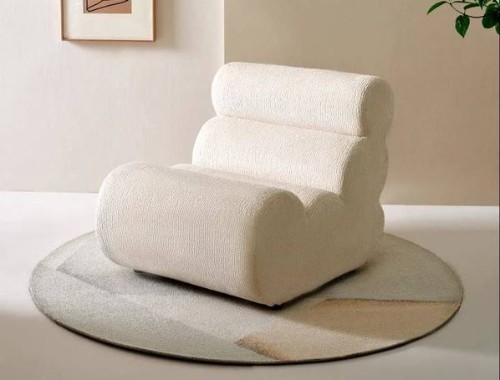Chinese sellers chase overseas debt defaulters
Chinese manufacturers are generating large volumes of goods for shipments abroad, but are also facing increasingly huge amounts of defaulted payments from foreign buyers.
NEW YORK - Chinese manufacturers are generating large volumes of goods for shipments abroad, but are also facing increasingly huge amounts of defaulted payments from foreign buyers.
The Sceptre Group, a debt collection agency in California, said the number of debts owed to Chinese exporters by US companies has risen by 80 percent in the past two years.
Figures from the China Chamber of International Commerce show that the amount of overseas debts owed to Chinese companies is at least $150 billion, with an annual increase of $15 billion over the past three years.
STA International, a debt collection agency in New York, said that the number of US debts it has collected for Chinese companies has risen recently.
Cedar Financial, also known as TCM Group, has also seen an increase in such claims from China.
Amir Erez, president of Cedar Financial and chairman of TCM Group, cited three reasons: The economy has affected many US businesses; more trade is going from China to the United States than the other way; many Chinese companies do not know how to collect debts from overseas and so do not enforce debts due to the culture.
STA International's Chief Operating Officer Joseph Lonetto said Chinese companies can sometimes be too trusting of Western companies. "Most of the business transactions in China are done on credit," he said.
"They are old-fashioned. Unlike Western companies, they don't sell goods based on letters of credit security.
"They don't ask for credit reports to look into the buyers' financial standing and credit history."
Lonetto said that because Chinese companies conduct their business based on guanxi (personal relationships and trust), they are sometimes taken advantage of. He said it is crucial to get credit information about companies you deal with.
Richard Hart, general manager at Direct Recovery Associates, attributed increasing debts to the economic crisis, saying many companies anxious for sales would extend a credit line of as much as $100,000 to buyers. Five years ago, they would have been more careful.
Sceptre Group owner John Dunton said many small and medium-sized manufacturers in China are hurting because of the US and Europe.
The China Chamber of International Commerce said companies from the US and western Europe make up 50 percent of new defaults on goods from China.
Often, getting the help of a debt collection company is the last resort. Dunton said Chinese companies do not generally use debt collectors until two or three years down the road.
Kate Zhang, controller at STA International, said that due to the low profit margin for exporting companies, they hesitate to use debt collectors. Also, when the debtors are so far away, they think it will be "pointless".
"Many Chinese companies think if they give their debtors more time, they will pay up," she said.
"But often, the debtors just keep pushing for time. That's why a lot of debts we get from China are two to three years old.
"They would try everything they can to collect the money themselves. When they come to us, it could be too late. The debtors could be out of business."
Hart said there is no chance of recovering the money owed if the age of the debt is beyond the statute of limitation, and in the US, that varies from state to state. In California, a creditor has four years to sue a debtor, provided there is a written contract or agreement. If it is a verbal agreement, a creditor has two years to sue.
"If a manufacturer in Hunan province ships goods to a company in Orange County in California and has not been paid, it has got to sue in Orange County," Dunton said.
If a contract has not been signed between the two parties, invoices, bills of delivery, purchase orders and even an e-mail can be used as evidence.
Hart said verbal agreements or phone orders are considered legally binding.
He said his company's rate of successful debt recovery is 90 percent. As long as the companies are in business, there is a good chance of recovery. But if the company is out of business, there is zero chance.
But sometimes US debtors do not want to pay up because they think China is too far away. "They won't even respond until a lawsuit comes," Dunton said.
"Some companies fight back with a lawsuit, just to scare them. But at this stage, Chinese companies are not afraid. They just want to get back their money."
Sceptre Group deals with a minimum of 30 lawsuits a month, Dunton said. The company charges 50 percent of the claim as a fee, regardless of the cost of the lawsuit. Claims from the Chinese companies range from $60,000 to $200,000.
Dunton said his company has a straightforward debt collection policy.
"Once we get a claim from our client, we send a letter to the debtors and give them 30 days," he said.
"We will follow up with one or two phone calls. If they don't pay or don't respond to us, we file a lawsuit right away. We don't waste time. We don't play games."
Dunton said the debt collection practice in China is different. In China, debt collectors like to meet debtors and negotiate with them. That often produces good results in China, but it will not work in the US.
"In the US, it will be letters and phone calls. If there is no response, it means they don't care," Denton said.
STA International said Chinese creditors should hire debt collection agencies as soon as possible to increase their chances of recovering the money.
Unfortunately, many Chinese companies do not trust debt agencies, Zhang said.
"People in China think it's a mafia industry. They think debt collection agencies will collect the money and run away with it," she said.
In contrast, US companies hire debt collectors as soon as the debts are three months old.
Lonetto said STA hopes to expand its Asian operations, "but it's a long way down the road. It's a slow growth process because it is also an educational process".
-

Quanyou teamed up with the fashion brand ANNAKIKI to launch a new joint product!
-

Outer, an outdoor furniture brand founded by Chinese, enters the Australian market
-

National Bureau of Statistics: The retail sales of furniture in the first three quarters reached 120.5 billion, an increase of 20.7%
-

Enveloping lounge chairs and lightweight office chairs from Arper feature

 沪公网安备31010402003309号
沪公网安备31010402003309号



